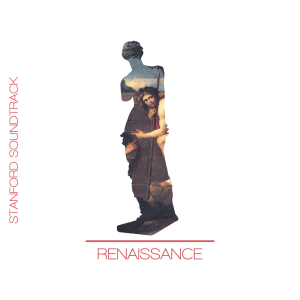Hidden behind the swarms of CS majors and pre-meds, beyond the powerhouse athletics department and unseen by the public eye perennially fixed on Greek life and admissions rates, Stanford has a quietly thriving and largely autonomous student music scene. While the artistic talent of Stanford students — whether they major in music or mechanical engineering — is undeniable, student art continues to fall between the cracks of campus life and academics, unheralded by the public and, perhaps more worryingly, often unnoticed by students. This year, the Stanford Music Collective (SMC) is working hard to open our eyes and ears to the musical side of Stanford through its revival of the Stanford Soundtrack, a once annual collection of original student music.

Under the direction of founder Kevin Coelho ‘17, the Music Collective is hoping to preserve and share the talent that’s so woefully overlooked on campus. The Stanford Soundtrack had been a yearly release coordinated by the Student Organizing Committee for the Arts (SOCA) since 2002, but last year the project was unceremoniously dropped. For Coelho, the decision to pick up where SOCA left off was simple. As a leader in the music community and an accomplished organist with intimate knowledge of the music industry, he was in prime position to take on the task of finding talent, recording and mixing final cuts, and most importantly, reaching student ears. Not only that, he wants to bring art to the fore of campus life and preserve what he believes to be some of the university’s best music. In the spirit of preservation and accessibility, Coelho has also uploaded every song ever recorded for previous Soundtracks to the Stanford Music Collective’s Soundcloud page.
To create “Renaissance,” this year’s compilation, Coelho assembled a committee of student leaders in the music community to determine which Stanford artists would be featured in the final cut. Once musicians were selected, most tracks were professionally recorded and mixed at the Center for Computer Research in Music and Acoustics (CCRMA). The end result is an eclectic but consistently impressive set of original music.
The compilation opens with the joyful 2004 Green Day-esque “Seattle” by none other than Frost opening alt-rockers Siberian Front. On “Off The Map,” The Wilde (Luke DeWilde ‘16) fuses hip-hop with guitar-heavy rock, creating a sound that flies by and lets the rapper’s carefree lyrics take center stage. My favorite track, a heavily electronic composition from the trio Arswain, has one of the more experimental sounds featured on the album. “Vaporize” swells and evolves from ambient synths to danceable beats with the help of tastefully layered vocals and guitar.
And what collection of college music would be complete without a little a capella? Stanford Harmonics delivers a dramatic rendition of Michael Bublé’s “Feeling Good,” which, with the help of studio mastering, sounds like it’s been lifted straight from a Broadway production. On the next track, Camp Youth creates a playful, summery feeling with their single “Jungle,” led by the soulful vocals of lead singer and guitarist Jenna Swartz ‘17. On freshman Liam McCarty’s ballad “Soliloquy,” the finger-picked guitar suggests folk or country, while the heartfelt singing (and artist’s surname) suggests Celtic influences. There’s definitely a little bit of Simon & Garfunkel in there, too. Fans of Yo-Yo Ma’s contemporary work with the Goat Rodeo Sessions will love “Julie,” an emphatic solo track in which Stephanie Tsai ‘15 manages to produce the most energetic music in the collection with just her cello.
The 12-track compilation is available now on Soundcloud, and physical copies will be distributed as part of the SOCA and EBF’s “Art After Dark” show and gallery on Saturday, May 23. Featuring live performances from Soundtrack artists and an open gallery of visual art, the event will be a good place to immerse yourself in the student art scene. But even if you can’t make it to the show, make sure to check out “Renaissance” online. I don’t want to keep describing Stanford’s music scene as “overlooked,” so do me a favor and take a listen.
You can contact Benjamin Sorensen at bcsoren ‘at’ stanford.edu.
